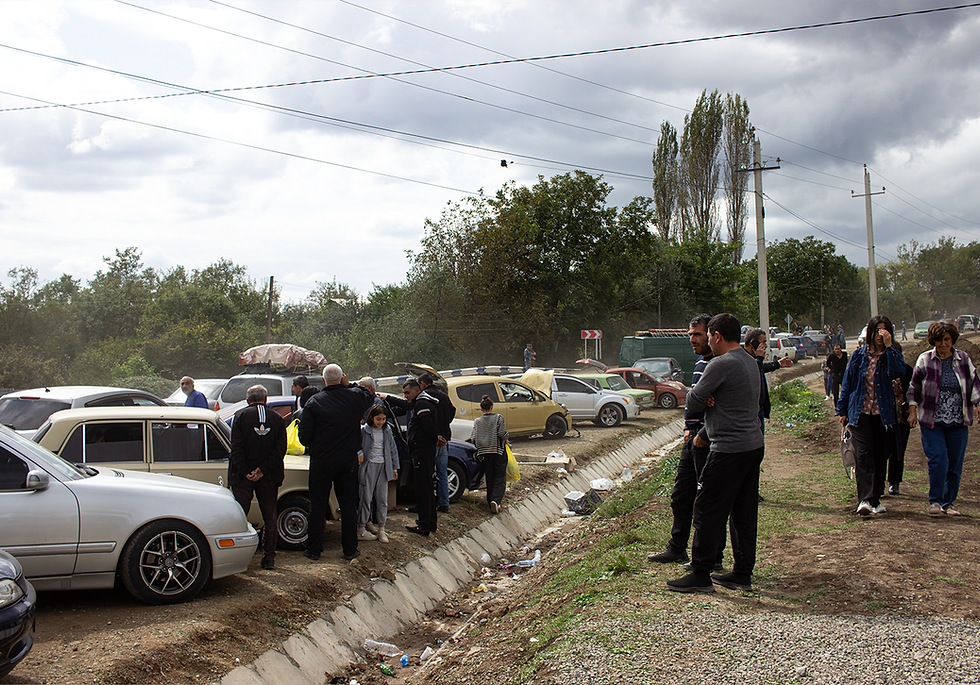Armenian Government Grants Refugee Status to Belarusian Man, Preventing Extradition
- The Armenian Report Team

- Oct 23, 2024
- 3 min read

A Belarusian man, Vladimir Balandin, has been granted refugee status by the Armenian government. The decision ensures that Balandin, who had faced the possibility of extradition to Belarus, is now protected under Armenian law and cannot be sent back to his home country.
The Migration and Citizenship Service of Armenia made the decision on Tuesday, bringing an end to Balandin’s uncertain situation. The Vanadzor office of the Helsinki Citizens’ Assembly (HCA), an Armenian human rights group, confirmed the news. They said that this decision was crucial in safeguarding Balandin from the risk of extradition, which is prohibited by international conventions now that he has been granted refugee status.
Vladimir Balandin’s troubles began when he was arrested in Armenia on March 10. He had been wanted in Belarus, where authorities initiated a criminal prosecution against him. Officially, Belarus charged him with embezzlement, but Balandin and his supporters argue that the charges are politically motivated. They believe that the real reason for his persecution is his participation in the massive anti-government protests that took place in Belarus in 2020.

These protests erupted in response to President Alexander Lukashenko's controversial reelection, which many—including Western nations—considered fraudulent. Balandin, like many others, took to the streets to express his dissatisfaction with the election results, exercising his right to freedom of speech and peaceful protest.
For months, Balandin’s fate hung in the balance. Armenian prosecutors initially agreed to his extradition on May 31, after receiving assurances from Belarusian authorities that his rights would be respected. However, human rights groups, including the Helsinki Citizens’ Assembly, warned that sending him back to Belarus would expose him to possible political persecution, unfair trials, and harsh treatment.
Balandin's legal team fought to overturn the extradition decision in Armenian courts, but they were unsuccessful. Faced with this situation, Balandin applied for asylum in Armenia, hoping to escape extradition. His application was accepted on Tuesday, granting him the protection he needed.
With refugee status, Balandin is now safe in Armenia, and his extradition is no longer a threat. The HCA praised the decision, stating that it marked a victory for human rights and a significant step toward protecting individuals who face political persecution.
Balandin’s case is not the first instance in which Armenia has granted asylum to Belarusians fleeing political repression. In recent years, Yerevan has refused to extradite at least two other Belarusian citizens who were wanted in Belarus for draft evasion. Like Balandin, these individuals had also participated in the 2020 protests against President Lukashenko’s rule. The Armenian government’s actions demonstrate a commitment to protecting those who face persecution for exercising their political rights.
Balandin’s asylum comes amid strained relations between Armenia and Belarus. Earlier this year, tensions flared after Belarusian President Alexander Lukashenko made pro-Azerbaijani statements during a visit to Azerbaijan. This angered Armenia, which has its own complex and contentious relationship with Azerbaijan, particularly regarding Azerbaijan’s invasion of Nagorno-Karabakh.
In response to Lukashenko’s remarks, Armenia recalled its ambassador from Minsk for consultations in June, signaling growing dissatisfaction with Belarus. Prime Minister Nikol Pashinyan later announced that he and other Armenian officials would not visit Belarus while Lukashenko remains in power, further validating the rift between the two countries.
In an interview with Russian state television in August, Lukashenko mocked Armenia and criticized its leadership for seeking closer ties with the West. His comments added fuel to the fire, deepening the divide between Minsk and Yerevan.
Vladimir Balandin’s case shows the growing trend of Belarusian citizens seeking refuge in other countries due to political repression. Since the 2020 protests, many Belarusians have faced criminal charges, imprisonment, and harsh treatment for their involvement in demonstrations calling for democratic reforms.
Balandin’s decision to flee to Armenia and seek asylum reflects the broader struggle for freedom of speech and political rights in Belarus. As Lukashenko’s government continues to clamp down on dissent, many activists and protesters are left with no choice but to leave their homeland in search of safety and protection.






Comments